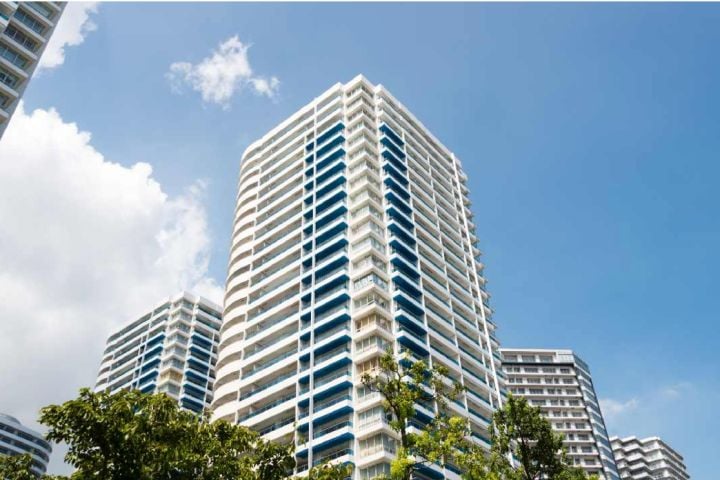Moving to a condo is an exciting step toward embracing a more modern, low-maintenance lifestyle. However, before you pack your bags and start settling in, there are a few things you need to know to make the transition as smooth as possible. From understanding the rules to securing condo insurance, here are the top 10 things you should consider before moving to a condo.
1. Understand the Condo Association Rules
Before you move into your new condo, it’s essential to familiarize yourself with the condo association’s rules and regulations. These rules help maintain order and harmony within the community. They cover various aspects of condo living, such as noise levels, pet policies, parking restrictions, and guidelines for making alterations to your unit.
Condo associations may also have guidelines regarding the use of common areas like pools, gyms, and parking lots. Violating these rules could lead to fines or other penalties, so make sure you understand them fully before moving in.
2. Get Familiar with the Condo Fees
Condo living often comes with monthly maintenance fees, which are used to cover the upkeep of common areas and shared amenities. These fees can vary depending on the building and the services offered, so it’s crucial to find out exactly what you’ll be paying each month.
In addition to the regular maintenance fees, you may also encounter special assessments for things like building repairs or upgrades. Be sure to budget for these recurring fees as part of your overall housing costs, as they are a necessary part of condo living.
3. Know Your Space Limitations
Condos are typically smaller than single-family homes, so it’s important to consider how much space you’ll have and whether it will meet your needs. Take measurements of your new unit and plan accordingly for the furniture and belongings you want to bring with you.
While some condos offer plenty of storage space, others may have limited room for larger items. Make sure you’re prepared to downsize or optimize your space with creative storage solutions. If you’re moving into a condo with little storage space, consider purchasing items like wall-mounted shelves or compact furniture to help keep everything organized.
4. Understand the Condo’s Layout and Floor Plan
Before moving in, take a close look at the condo’s floor plan. A good understanding of the layout will help you plan your move more efficiently and avoid surprises when it comes to fitting furniture into tight spaces.
Measure doorways and hallways to ensure that your furniture can pass through easily, and decide how you’ll arrange your belongings. If the condo’s layout doesn’t suit your preferences, consider whether any modifications or renovations might be necessary to make it more comfortable.
5. Condo Insurance Is a Must
While the condo association’s insurance policy typically covers the building structure, it’s important to have your own condo insurance to protect your personal property and liability. Condo insurance covers things like personal belongings, damages to the interior of your unit, and liability in case of accidents or injuries inside your condo.
When choosing a condo insurance policy, make sure it aligns with the condo association’s insurance requirements. You can reach out to insurance providers for personalized advice to ensure you’re fully covered. For expert guidance, you can contact Nation West to help you find the best condo insurance policy for your needs.
6. Consider the Building’s Amenities and Services
Many condos offer amenities that make life more convenient, such as gyms, pools, laundry rooms, and even concierge services. While these can be a big perk, they may come with additional fees or usage restrictions. It’s important to understand what amenities are available and whether they add value to your lifestyle.
Some condo buildings also provide services like trash removal, snow cleaning, and maintenance staff to assist with common areas. However, these services may be included in your monthly fees, so you’ll want to weigh the cost of these amenities against the benefits they offer.
7. Evaluate Parking and Storage Options
Parking can be a significant consideration when moving into a condo, especially if the building is in a busy urban area. Some condos offer designated parking spaces, while others may have limited parking or require an additional fee. Be sure to clarify parking arrangements before committing to a condo.
In addition to parking, you may also need to consider storage options. Many condos have limited storage space within the unit, so you may need to rent extra storage in a shared facility. Ask about available options for bike storage, seasonal items, or other items that might not fit in your unit.
8. Noise and Privacy Considerations
One of the trade-offs of condo living is being in close proximity to your neighbors, which means noise can sometimes be a concern. Condos are often built with shared walls, floors, and ceilings, so sounds from neighbors above, below, or beside you can be heard.
To mitigate this, you may want to invest in soundproofing solutions or set clear boundaries with your neighbors about noise levels. Respecting your neighbors’ privacy and being considerate about noise can help foster a positive community atmosphere.
9. The Impact of Location
The location of your condo plays a significant role in your daily life. Consider how close the building is to your work, public transportation, schools, grocery stores, and other essential services. Being centrally located can save you time and make life more convenient, but it may also come with a higher price tag.
Before committing, think about the neighborhood’s overall safety, walkability, and future development plans. Are there new restaurants, stores, or parks in the area that could enhance your living experience, or is the neighborhood still in the early stages of development?
10. Plan for Maintenance and Repairs
In a condo, maintenance responsibilities are often shared between the condo association and the individual unit owners. The condo association typically handles the upkeep of common areas, such as hallways, elevators, and the building exterior, while you are responsible for maintaining your own unit.
Make sure to familiarize yourself with the condo association’s maintenance policy and know who to contact for repairs. You should also be aware of any emergency procedures for issues like plumbing or electrical problems. Having a plan in place for both routine maintenance and unexpected repairs will ensure that your condo remains in good condition.
Make Condo Living Work for You
Moving to a condo can be a great lifestyle choice, but it requires thoughtful planning and preparation. By understanding the condo association rules, fees, space limitations, and insurance requirements, you can set yourself up for success. Condo living offers convenience, community, and the opportunity to live in a prime location, but only if you’re well-prepared for the unique challenges it brings.
By following these 10 essential tips, you’ll be ready to embrace condo life and enjoy all the perks it has to offer.
We hope you found this blog post on Things You Should Know Before Moving to a Condo, useful. Be sure to check out our post on Complete Guide for Foreigners Buying Condos Overseas for more great tips!
Have Experience in the Moving Industry? Want an Additional Income Stream? Work With All Around Moving!
Join the Work With Us program. We provide you, the moving relocation consultant, with the carriers, or you can use your own carrier, and have your own company up and running.
Click here to learn more and how a nominal one-time start-up fee of $275.00, gives you the “key” to have your business.






